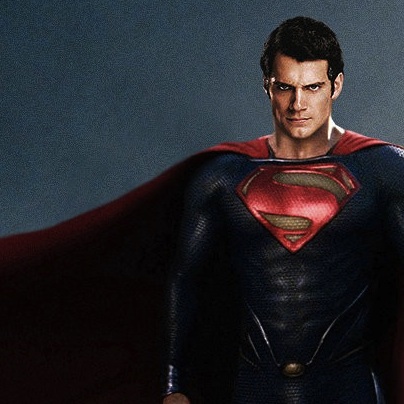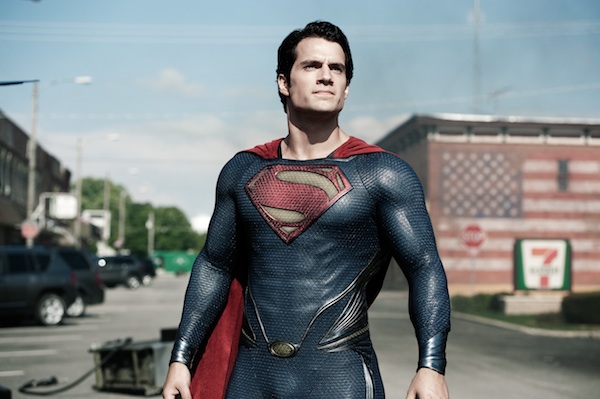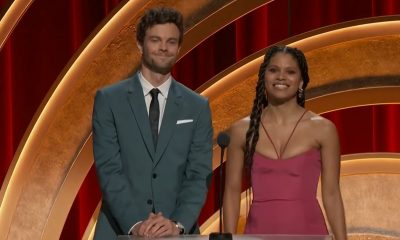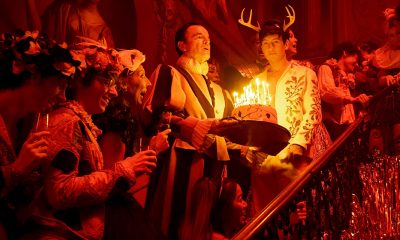Arts & Entertainment
Franchise fizzle?
Successful Superman reboot proves elusive with limp ‘Man of Steel’

In a 21st-century dominated by multi-dimensional heroes like Batman and Iron Man, the Superman franchise conjures up feelings of all-American nostalgia more than anything. Zack Snyder, director of “Man of Steel,” attempts to depart from this in his summer blockbuster, but does not replace it with anything more substantial leaving us essentially with another explosion extravaganza but little else.
Henry Cavill is a promising actor, but his performance as the extra-terrestrial from Krypton is not for one second believable. Cavill seems most comfortable during the beginning of the film, which due to production by Christopher Nolan (who also did the “Batman” franchise), is a lengthy and morose sequence of fragmented scenes that document Clark Kent’s self-discovery. Nolan’s influence makes Superman’s clearly demarcated sense of good and evil feel unnatural and all too simple.
Cavill brings too much rugged sex appeal to the role, making him more reminiscent of Hugh Jackman’s portrayal of Wolverine in “X-Men” than of someone who would wear a red cape in all seriousness.
It’s a tough role to pull off — while Brandon Routh in 2006’s “Superman Returns” arguably captured the role better with his more innocent approach, it clearly wasn’t strong enough to have led to a successful franchise. Cavill is intriguing, dynamic and has undeniable charisma, yet it feels like he’s holding back as the script gives him little to work with in terms of characterization or complexity. While Cavill’s performance leaves some things to be desired, he isn’t ultimately to blame for the film’s shortcomings.
“Man of Steel” opens with a home-birth on Krypton as the planet is self-destructing. Russell Crowe goes through the motions as Jor-El, baby Kal-El’s father, who rockets his son to Kansas to preserve his race. General Zod (Michael Shannon) is introduced as the film’s forgettable villain as he attempts to steal Krypton’s Codex — a log of the planet’s genetic information — from Kal-El, which remains a theme for the entirety of the movie as Zod threatens to reconfigure earth into a new Krypton at humanity’s expense.
Unfortunately, the dialogue in “Man of Steel” is as melodramatic and bland on earth as it is on Krypton. (The film’s writer, David S. Goyer, clearly is not afraid of clichés.) For the first hour, scenes jump from school buses and cornfields in Kansas to Arctic tundra with little context given, and some sort of loud catastrophe quickly interrupts any conversation that seems like it will reveal something about the characters.
Diane Lane and Kevin Costner do a perfectly satisfactory job as Clark Kent’s adoptive parents. Amy Adams, however, never seems invested in her role as reporter and love interest, Lois Lane. Adams practically sleepwalks through life or death scenes, and her kiss with Clark Kent toward the end of the movie is awkward and forced. It’s not that Adams and Cavill lack the ability to portray a believable romance; they simply do not have the script to do so, even though “Man of Steel” is an origins story that should make the audience feel attached to its characters.
The majority of the film feels like a confusing dream of drawn-out action scenes. It becomes all too easy to forget who is fighting whom, and for what reason, as Cavill darts through the air. “Man of Steel’s” shining moments are the interspersed scenes of Superman’s childhood, with a young Clark Kent played by Dylan Sprayberry and Cooper Timberline. Both actors do a fine job capturing Kent’s teen angst, sense of alienation and repressed desire to use his powers for good in a world that would not accept him.
Even though “Man of Steel” is a long 143 minutes, it goes by quickly, perhaps due to Hans Zimmer’s overpowering score and the confusion caused by Snyder’s non-linear plot. In the film’s defense, it’s difficult to create a Superman story that appeals to contemporary America. Superman’s unwavering sense of right and wrong fit so well during the Cold War, but now his narrative seems naive with more widespread recognition of the country’s internal issues and fear that its global supremacy is waning.
“Man of Steel” ends with the promise of a sequel as Cavill puts on Clark Kent’s endearingly nerdy glasses. Perhaps without the need to jumble together a creation story, it’s more likely Snyder will pull off a sequel should this chapter’s box office take justify it.
Sports
Bisexual former umpire sues Major League Baseball for sexual harassment
Brandon Cooper claims female colleague sexually harassed him

A fired former umpire is suing Major League Baseball, claiming he was sexually harassed by a female umpire and discriminated against because of his gender and his sexual orientation.
Brandon Cooper worked in the minor league Arizona Complex League last year, and according to the lawsuit he filed Wednesday in federal court in Manhattan, he identifies as bisexual.
“I wanted my umpiring and ability to speak for itself and not to be labeled as ‘Brandon Cooper the bisexual umpire,’” he told Outsports. “I didn’t want to be labeled as something. It has been a passion of mine to simply make it to the Major Leagues.”
But that didn’t happen. Instead of being promoted, he was fired. His suit names MLB and an affiliated entity, PDL Blue, Inc., and alleges he had endured a hostile work environment and wrongful termination and/or retaliation because of gender and sexual orientation under New York State and New York City law.
“Historically the MLB has had a homogenous roster of umpires working in both the minor and major leagues,” Cooper claims in his suit. “Specifically, to date there has never been a woman who has worked in a (regular) season game played in the majors, and most umpires are still Caucasian men. To try to fix its gender and racial diversity issue, defendants have implemented an illegal diversity quota requiring that women be promoted regardless of merit.”
Cooper claims former umpire Ed Rapuano, now an umpire evaluator, and Darren Spagnardi, an umpire development supervisor, told him in January 2023 that MLB had a hiring quota, requiring that at least two women be among 10 new hires.
According to the suit, Cooper was assigned to spring training last year and was notified by the senior manager of umpire administration, Dusty Dellinger, that even though he received a high rating in June from former big league umpire Jim Reynolds, now an umpire supervisor, that women and minority candidates had to be hired first.
Cooper claims that upon learning Cooper was bisexual, fellow umpire Gina Quartararo insulted him and fellow umpire Kevin Bruno by using homophobic slurs and crude remarks. At that time, Quartararo and Cooper worked on the same umpiring crew and being evaluated for possible promotion to the big leagues.
This season, Quartararo is working as an umpire in the Florida State League, one of nine women who are working as minor league umpires.
Cooper said he notified Dellinger, but instead of taking action against Quartararo, he said MLB ordered Cooper to undergo sensitivity training. According to his lawsuit, he was also accused of violating the minor league anti-discrimination and harassment policy.
Cooper’s suit says he met with MLB Senior Vice President of Diversity, Equity and Inclusion Billy Bean — who the Los Angeles Blade reported in December is battling cancer.
The lawsuit says at that meeting, Bean told the umpire that Quartararo claimed she was the victim, as the only female umpire in the ACL. Cooper said he told Bean Quartararo regularly used homophobic slurs and at one point physically shoved him. He also claims that he has video evidence, texts and emails to prove his claim.
But he said his complaints to Major League Baseball officials were ignored. His lawsuit said MLB passed him over for the playoffs and fired him in October. He said of the 26 umpires hired with Cooper, he was the only one let go.
Through a spokesperson, MLB declined to comment on pending litigation. Quartararo has also not publicly commented on the lawsuit.
a&e features
Eastern Shore chef named James Beard Finalist
Harley Peet creates inventive food in an inclusive space

In a small Eastern Shore town filled with boutiques, galleries, and the occasional cry of waterfowl from the Chesapeake, Chef Harley Peet is most at home. In his Viennese-inflected, Maryland-sourced fine-dining destination Bas Rouge, Peet draws from his Northern Michigan upbringing, Culinary Institute of America education, and identity as a gay man, for inspiration.
And recently, Peet was named a James Beard Finalist for Best Chef: Mid-Atlantic – the first “Best Chef: Mid-Atlantic” finalist representing the Eastern Shore.
Peet, after graduation from the Culinary Institute of America, took a position as sous chef at Tilghman Island Inn, not far from Bas Rouge. Falling in love with the Eastern Shore, he continued his passion for racing sailboats, boating, gardening, and fishing, and living his somewhat pastoral life as he opened Bas Rouge in 2016 as head chef, a restaurant part of the Bluepoint Hospitality group, which runs more than a dozen concepts in and around Easton, Md.
Coming from a rural area and being gay, Peet knew he had his work cut out for him. He was always aware that the service and hospitality industry “can be down and dirty and rough.”
Now as a leader in the kitchen, he aims to “set a good example, and treat people how I want to be treated. I also want to make sure if you’re at our establishment, I’m the first to stand up and say something.”
The Bas Rouge cuisine, he says, is Contemporary European. “I’m inspired by old-world techniques of countries like Austria, Germany, and France, but I love putting a new spin on classic dishes and finding innovative ways to incorporate the bounty of local Chesapeake ingredients.”
His proudest dish: the humble-yet-elevated Wiener Schnitzel. “It is authentic to what one would expect to find in Vienna, down to the Lingonberries.” From his in-house bakery, Peet dries and grinds the housemade Kaiser-Semmel bread to use as the breadcrumbs.
Peet works to support the LGBTQ community inside and outside of the kitchen. “I love that our Bluepoint Hospitality team has created welcoming spaces where our patrons feel comfortable dining at each of our establishments. Our staff have a genuine respect for one another and work together free of judgment.”
Representing Bluepoint, Peet has participated in events like Chefs for Equality with the Human Rights Campaign, advocating for LGBTQ rights.
At Bas Rouge, Peet brings together his passion for inclusion steeped in a sustainability ethic. He sees environmental stewardship as a way of life. Peet and his husband have lived and worked on their own organic farm for several years. Through research in Europe, he learned about international marine sourcing. Witnessing the impacts of overfishing, Peet considers his own role in promoting eco-friendly practices at Bas Rouge. To that end, he ensures responsible sourcing commitments through his purveyors, relationships that have helped create significant change in how people dine in Easton.
“I have built great relationships in the community and there’s nothing better than one of our long-standing purveyors stopping in with a cooler of fresh fish from the Chesapeake Bay. This goes especially for catching and plating the invasive blue catfish species, which helps control the species’ threat to the local ecosystem.
Through his kitchen exploits, Peet expressed a unique connection to another gay icon in a rural fine-dining restaurant: Patrick O’Connell, of three Michelin starred Inn at Little Washington. In fact, Peet’s husband helped design some of O’Connell’s kitchen spaces. They’ve both been able to navigate treacherous restaurant-industry waters, and have come out triumphant and celebrated. Of O’Connell, Peet says that he “sees [his restaurants] as canvas, all artistry, he sees this as every night is a show.” But at the same time, his “judgment-free space makes him a role model.”
Being in Easton itself is not without challenges. Sourcing is a challenge, having to either fly or ship in ingredients, whereas urban restaurants have the benefit of trucking, he says. The small town “is romantic and charming,” but logistics are difficult – one of the reasons that Peet ensures his team is diverse, building in different viewpoints, and also “making things a hell of a lot more fun.”
Reflecting on challenges and finding (and creating) space on the Eastern Shore, Peet confirmed how important it was to surround himself with people who set a good example, and “if you don’t like the way something is going … move on.”

Team DC, the umbrella organization for LGBTQ-friendly sports teams and leagues in the D.C. area, held its annual Night of Champions Awards Gala on Saturday, April 20 at the Hilton National Mall. The organization gave out scholarships to area LGBTQ student athletes as well as awards to the Different Drummers, Kelly Laczko of Duplex Diner, Stacy Smith of the Edmund Burke School, Bryan Frank of Triout, JC Adams of DCG Basketball and the DC Gay Flag Football League.
(Washington Blade photos by Michael Key)



















-

 State Department2 days ago
State Department2 days agoState Department releases annual human rights report
-

 Maryland4 days ago
Maryland4 days agoJoe Vogel campaign holds ‘Big Gay Canvass Kickoff’
-

 Politics3 days ago
Politics3 days agoSmithsonian staff concerned about future of LGBTQ programming amid GOP scrutiny
-

 The White House1 day ago
The White House1 day agoWhite House debuts action plan targeting pollutants in drinking water













